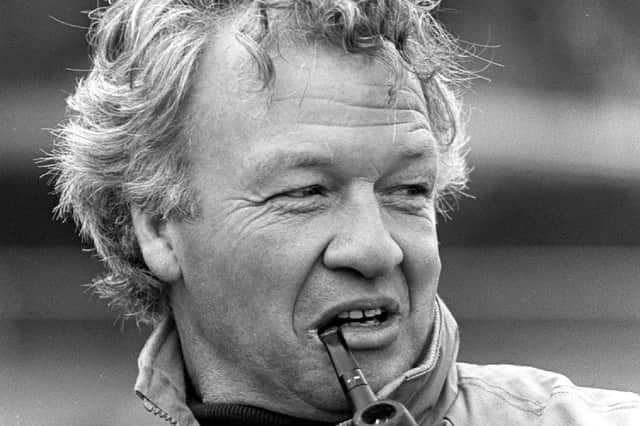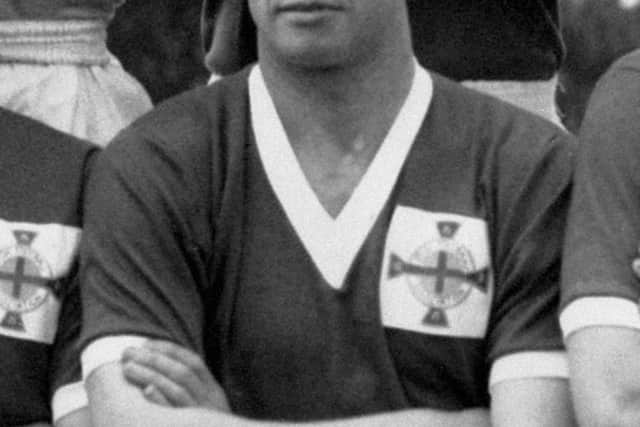Owen Polley: Billy Bingham should have been awarded a knighthood


The Irish FA could certainly do with his management skills now. The current side, shapeless and directionless, struggled against two of European football’s minnows, winning one point out of a possible six.
We are a small place, with few players to choose from, and some of those opt to represent a different country, so some disappointments are inevitable.
Advertisement
Hide AdAdvertisement
Hide AdIn the modern era, though, it was Billy Bingham, more than anyone else, who created the sense that Northern Ireland could compete against much larger nations and be among the sport’s regular over-achievers.


His accomplishments deserved more official recognition than the MBE that he received in 1981.
Northern Ireland is still one of the smallest countries ever to have qualified for the World Cup and we’ve been to three finals tournaments.
As a player, Bingham was a vital part of the team in 1958, when it reached the last eight in Sweden. As a manager, he masterminded successful qualification campaigns for the 1982 and 1986 tournaments.
Advertisement
Hide AdAdvertisement
Hide AdHis team’s win against the hosts, Spain, in 1982, is probably the key moment in Northern Irish football folklore. Gerry Armstrong’s memorable winner booked us a place in another quarter final.
If that weren’t enough, during Bingham’s time in charge, Northern Ireland became British champions twice by winning the old Home Internationals outright. They twice beat West Germany in the European Championship qualifiers in 1984, with Ian Stewart scoring the critical goals.
In archetypal Northern Ireland fashion, the team failed to win against Albania and lost against Turkey, meaning that they missed out on qualifying on goal-difference. However, they almost edged out the Germans, which would have been the only time in their history that they’d not qualified for a major tournament.
These were highly improbable feats, realised against the odds and inspired by the manager’s professionalism and tactical acumen.
Advertisement
Hide AdAdvertisement
Hide AdUnder Bingham, Northern Ireland often set out to frustrate sides with far more resources. But they were clever in possession too, playing a modern, tactical form of football. He embraced ideas about fitness and nutrition before they became part of the sport’s culture, with the result that no team would out-work or out-think Northern Ireland under Billy Bingham.
He retired in 1994, after a 1-1 draw with the Republic of Ireland that was subsequently deemed ‘infamous’. For having the temerity to try to win that last game, Bingham was subjected to a barrage of abuse and accusations from his rival manager, Jack Charlton, as well as politicians and media south of the border. In this newspaper, Mark Rainey wrote powerfully recently about how the myths that surrounded that ‘night in November’ were created.
And Gerry Armstrong responded to the idea that the manager’s behaviour was inflammatory by saying, “I can 100% confirm that there was never any sectarianism that went on in our squad ever.”
Bingham’s legacy was the idea that a well organised, hard working Northern Ireland team could successfully compete against any nation in world football. That ethos eventually helped two of his successors, Lawrie Sanchez and, particularly, Michael O’Neill to their own impressive results.
Advertisement
Hide AdAdvertisement
Hide AdO’Neill was given his international debut as a player by Bingham and his team recreated the team spirit and indefatigability of the past when it qualified for Euro 2016 in France. A 2-0 win against Ukraine in Lyon gave a whole new generation, many of whom did not remember the early 1980s, their own special moment that they will no doubt recount for decades to come.
That was a towering accomplishment and the 1958 team, managed by Danny Blanchflower, was tremendously successful too. Bingham, though, was surely the greatest Northern Ireland manager by a comfortable distance.
When you take population into account, his exploits were the equivalent of an English manager winning several big tournaments.
I think we’re too quick sometimes in Northern Ireland to get chips on our shoulders, but it’s fair to assume that, if Bingham had over-achieved so spectacularly as an England or Scotland coach he would have received a knighthood.
Advertisement
Hide AdAdvertisement
Hide AdSir Bobby Robson took his team to the semi-finals of Italia 90, which was creditable, but hardly an accomplishment to rival Northern Ireland in 1982. Gongs were thrown around with abandon after the 2012 Olympics and England’s cricketers were showered with MBEs and OBEs for winning one Ashes series in 2005.
It’s a pity that a towering figure like Bingham, who did more for Northern Ireland football than anyone else, was not awarded a loftier title. But the Green and White Army will remember him as ‘the greatest’ and that, surely, is the most important honour.
• Owen Polley June 6: Queen’s jubilee is reminder of the durability of the UK
• Ben Lowry: Remembering the joy of watching Billy Bingham
• Ben Lowry June 4: Some thoughts on the centenary parade and BBC coverage